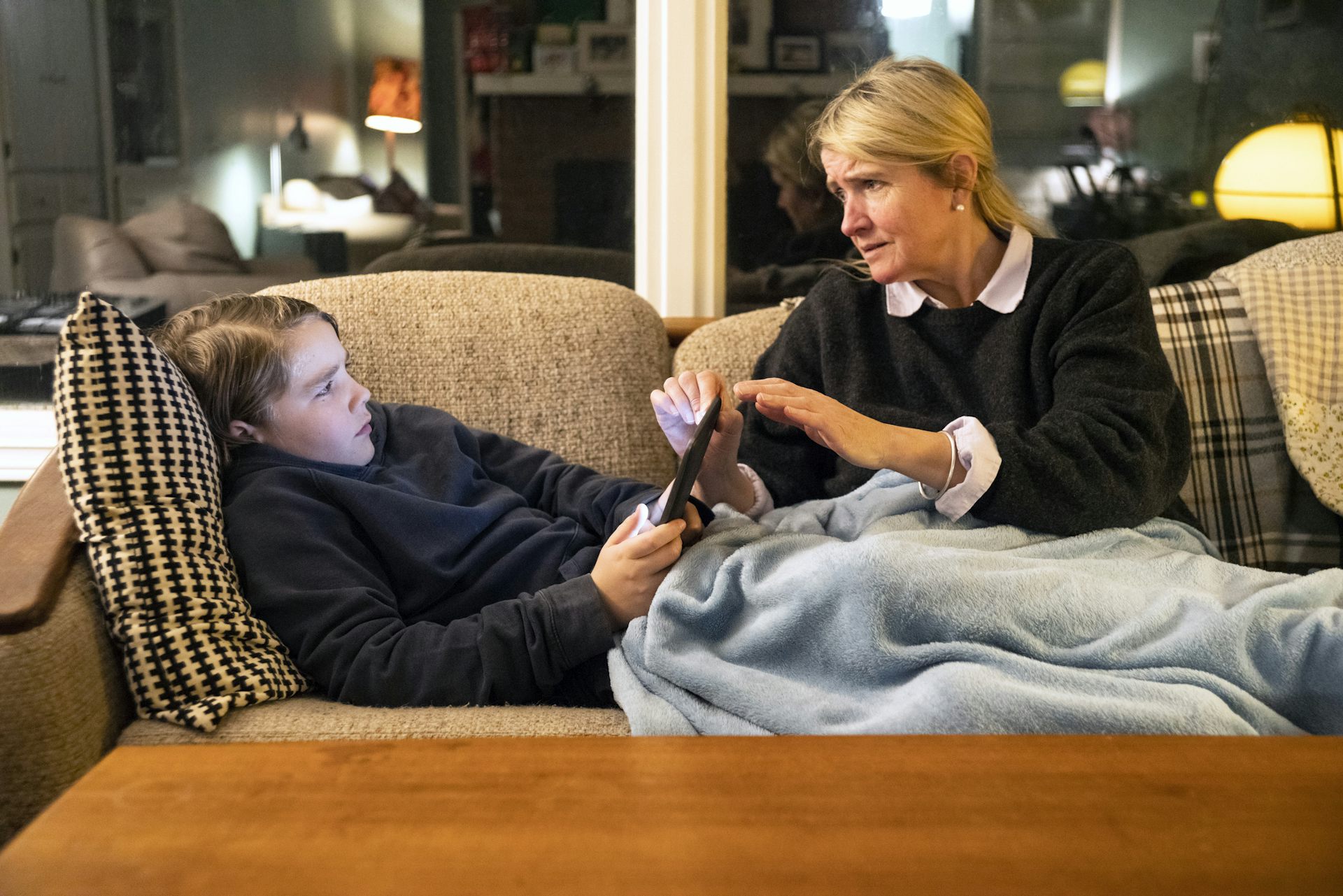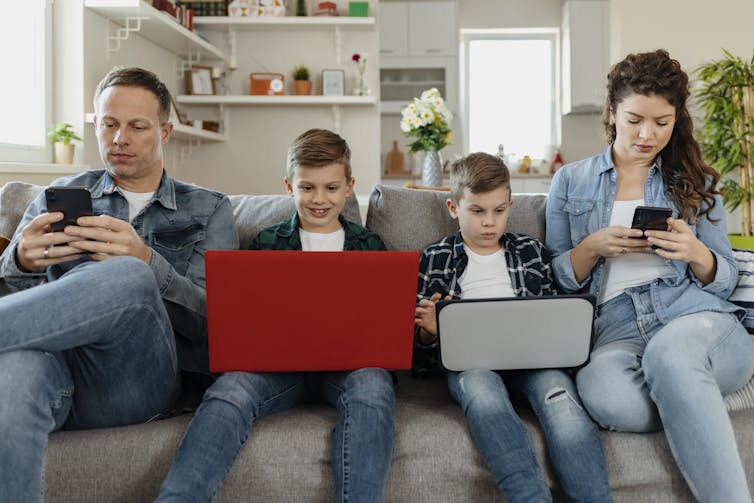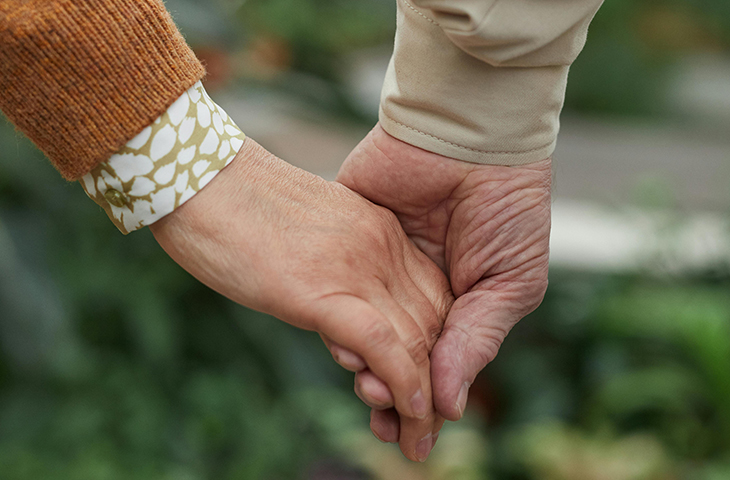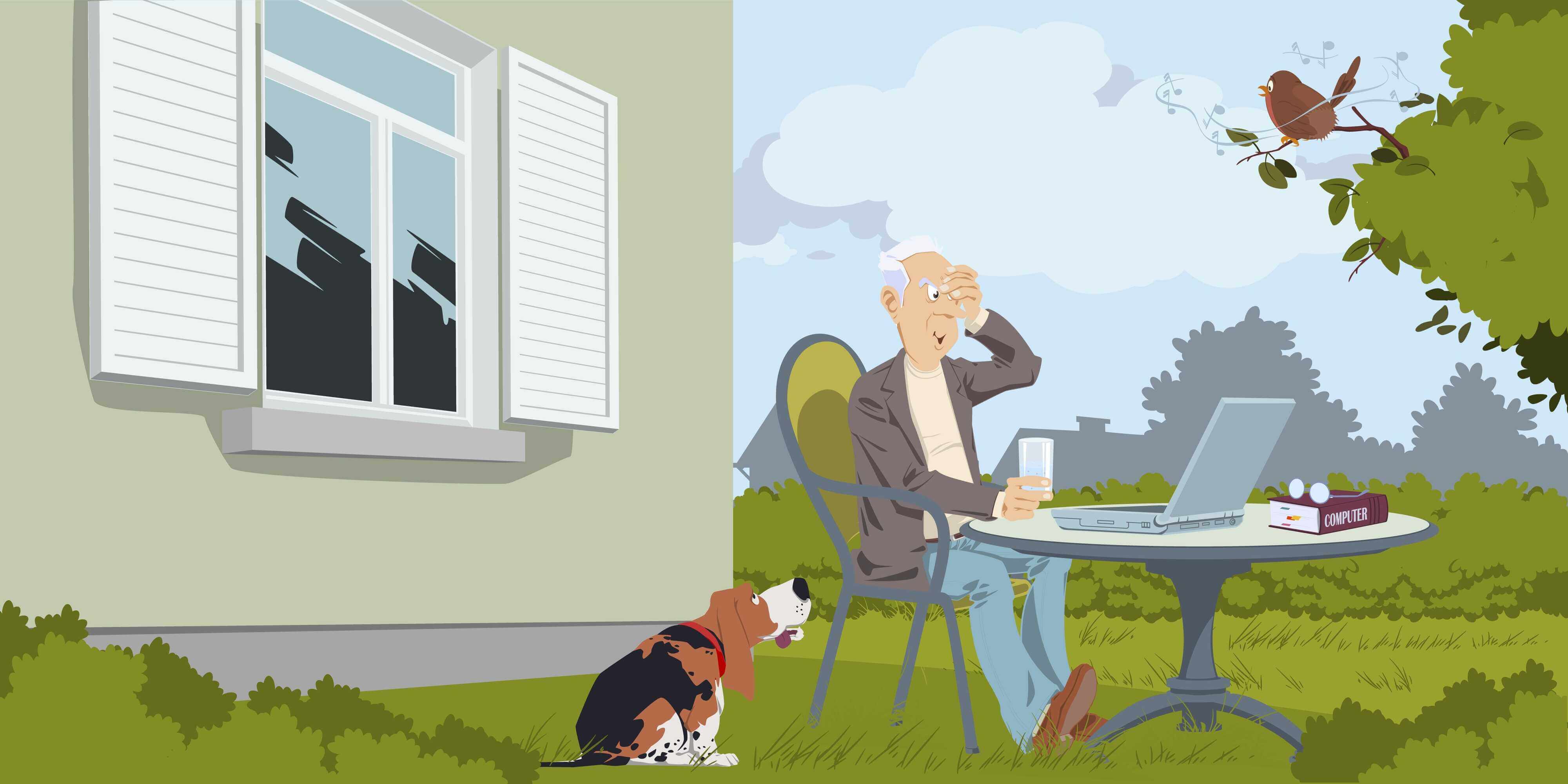Guilt Over Kids’ Screen Time Is Common, Uncomfortable And Can Stress Family Relationships − But It Can Have A Silver Lining

Screen time can be a major point of contention for parents and children. Fertnig/E+ via Getty Images
What parent hasn’t been there? It’s been a long day, you still have dinner to make, maybe lunches for tomorrow too, and you just don’t have the energy to wrangle your kids into a new art project or plead with them to pick up a book.
Instead, you give in when they beg for more iPad time. Or maybe they promise they’ll do their homework after just a few more YouTube videos, and it’s easier to agree than have another argument. Now you’re not only exhausted, you feel like a bad parent too.
If this resonates with you, you’re not alone. Concern over how – and how much – their children are using media is a common source of parental guilt, which makes sense given the reputation of screen use as a frivolous waste of time, with no intrinsic value. So even if people are on their screens for a great reason – to relax, for example, or otherwise manage their moods – they are inclined to feel guilty about it. And this guilt undermines any stress-reducing benefit they might have otherwise enjoyed.
But as unpleasant as this guilt is, the good news is that those feelings, if you listen to them, can help encourage healthier choices for you and your kids.
 Screen use is a part of modern life for most people.
PixelsEffect/E+ via Getty Images
Screen use is a part of modern life for most people.
PixelsEffect/E+ via Getty Images
Parental guilt over child screen use
Studies, including from my own media research group, have found that screen media use is among the most common tools that people of all ages use to decompress, relax and enjoy themselves.
But parents worry about their kids’ screen use and for good reason. Without adequate management, screen time can too easily get out of hand, raising concerns about negative outcomes, such as compromised sleep, increased obesity risk, reduced academic performance and mental health challenges.
So here’s the dilemma. Well-meaning parents set various rules to protect their children from the harms associated with too much screen time. But research shows that most parents break those rules. If a child is sick, why not let them play several hours of video games? Maybe you plop your child in front of the TV to keep them busy while you sort laundry or hop on a work call.
So what happens when you break your own rules – especially when those rules are in place to protect your children? You’re primed to feel guilt, and because guilt is its own form of stress, this dynamic sets up tension that can be unhealthy for both parents and kids.
The downside of parental screen guilt
The COVID-19 pandemic, when media use of all sorts increased among all demographics in the U.S. and internationally, gave my research team a unique opportunity to study the guilt that parents feel over their children’s screen use.
Our research considered how the sudden and substantial increase in screen use at the onset of the pandemic affected how parents felt about their relationships with their children. We surveyed parents in March 2020 and another group of parents in both April and May of 2020. We asked about their child’s amount of screen time, their feelings of guilt about their child’s screen use, the stress they felt about it and how satisfied they were with their relationship with their child.
We found that 73% of parents experienced at least some guilt, and 48% felt moderate to intense guilt over their child’s use of screens. So, parental screen guilt was quite common.
We also found that parents who felt more guilt about their child’s screen use also experienced greater stress about that screen use, and that greater stress was linked to feeling less satisfied with their relationship with their child. Importantly, parents’ initial screen guilt in April predicted higher stress about screen use in May, but initial screen stress in April did not predict screen guilt in May. What does this mean? Screen guilt was, in fact, increasing stress, and not the other way around.
What about the amount of time kids spent on screens? Is that the reason why parents felt guilty and stressed? It turns out: not really. In our research, we found little to no relationship between how long children used screens and parents’ screen guilt, screen stress or relationship satisfaction. In other words, it was the feelings of guilt over children’s use of screens, regardless of the amount of use itself, that was problematic for the parents and, by extension, their children.
 You can view guilty feelings as a signal to find something else to do together.
shironosov/iStock via Getty Images Plus
You can view guilty feelings as a signal to find something else to do together.
shironosov/iStock via Getty Images Plus
Turning guilt lemons into lemonade
So, what can a parent do? Rather than berating yourself over perceived mistakes or misjudgments regarding media choices, it would be far more productive to find the value and deeper lessons in your screen guilt.
People feel guilt when they see their actions conflict with their internalized belief systems or standards of behavior. And as uncomfortable as guilty feelings may be, that guilt can be useful in helping you repair any harms you think you may have caused, particularly within relationships.
In other words, screen guilt can be useful information, nudging you to reflect on and adjust your own rules or choices. Was there a good reason to relax your usual limits on screen use, like when trying to comfort your child when they are sick? On the other hand, is your child suffering negative consequences, for example, not completing homework or getting exercise, because of leniency with screens? Or do you simply feel like a bad parent because you’ve internalized the belief that good parents don’t let their children use screens?
Such reflection can be an opportunity to consider not only how your family is using screens but, importantly, what guardrails you might need to put in place, or adjust, to support family wellness.
Although you might not hear this sentiment often, not all screen media use is bad. There is, in fact, evidence that screen use and content can contribute to a range of wonderful outcomes, including learning, social connection, inspiration and, yes, relaxation and stress relief.
Although guilt may not be pleasant, if you take a moment to understand why you feel it, it can help guide you in creating not only a more balanced diet of media and real-world experiences for you and your family, but also more satisfying relationships with your kids.
Robin Nabi does not work for, consult, own shares in or receive funding from any company or organization that would benefit from this article, and has disclosed no relevant affiliations beyond their academic appointment.


